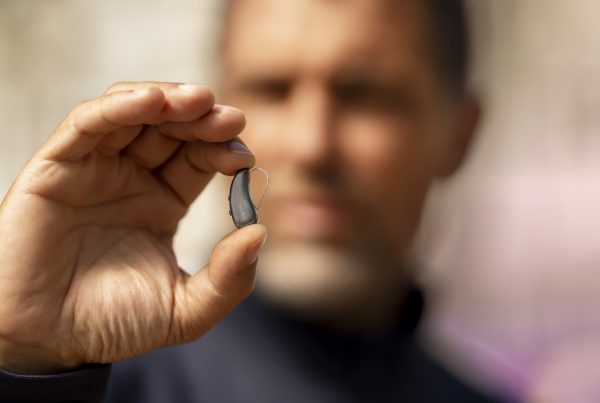Tinnitus UK is a charity that runs a UK helpline dedicated to helping people with tinnitus. Tinnitus is the sensation of hearing a sound when there’s no external source for it. Affecting an estimated one in seven adults in the UK, the severity of the symptoms varies according to each individual and can be extremely distressing for people living with the condition.
Autonomous Sensory Meridian Response (ASMR) is a relatively new phenomenon that has been gaining popularity in recent years. The term refers to a tingling sensation in the scalp and back of the neck that can be triggered by certain sounds, such as whispering or tapping. Interestingly, recent studies have found that ASMR can also provide relief from hearing concerns, such as tinnitus and hyperacusis.
ASMR works by providing gentle stimulation to the auditory system through soft, soothing sounds. Studies have found that these sounds can help to reduce anxiety, improve sleep quality, and relax tension in the body. When it comes to hearing concerns specifically, research has shown that people who listen to ASMR have reported reduced symptoms of tinnitus and hyperacusis. This suggests that listening to ASMR may be useful for people who struggle with these conditions, as it can provide relief from their symptoms.
Getting started with ASMR is relatively simple – all you need is access to some sort of audio device (e.g., a smartphone or laptop) and a quiet environment to listen in. There are many different types of ASMR content available online – from podcasts to YouTube videos – so you’re sure to find something that suits your preferences. Additionally, if you want more personalised content tailored specifically for you, there are also companies specialising in creating custom-made ASMR audio files.
The effect of tinnitus on a person’s quality of life
Tinnitus is a common but often misunderstood condition that affects millions of people around the world every year. While it does not necessarily pose any significant risks to physical health, it can cause severe mental and emotional distress due to its constant noise and disruption of everyday activities. Thankfully, there are treatments available that may help reduce some symptoms associated with this condition so that those affected by it may live better quality lives despite its presence. For those seeking help managing their tinnitus symptoms, consulting with a healthcare professional is highly recommended so they may find the best treatment plan for themselves.
So, how does ASMR help tinnitus?
ASMR works by engaging the brain which triggers a sensory response to the sounds. It is thought that listening to ASMR helps a person to “forget” about the sound of tinnitus. That might sound tricky, but your brain already does it all the time. For example, when you put on a hat, after a while you are hardly aware of it on your head. ASMR can also help to reduce stress, which can be cause of tinnitus. If you decide to give ASMR a go, it’s important that you listen at a low volume – high volume sounds could have the reverse affect and could make tinnitus worse.
Tinnitus is often associated with hearing loss of some kind. Therefore, if you are suffering with tinnitus, it’s important to book an appointment with us so that we can conduct a full hearing assessment. We’ve found that in many cases, we’re able to manage the hearing loss and this leads to the tinnitus subsiding and improving over time.
Tinnitus UK organises and hosts an annual tinnitus conference that takes place online from 25 – 29 September 2023. To find out more about the condition, visit www.tinnitus.org.uk.









Recent Comments